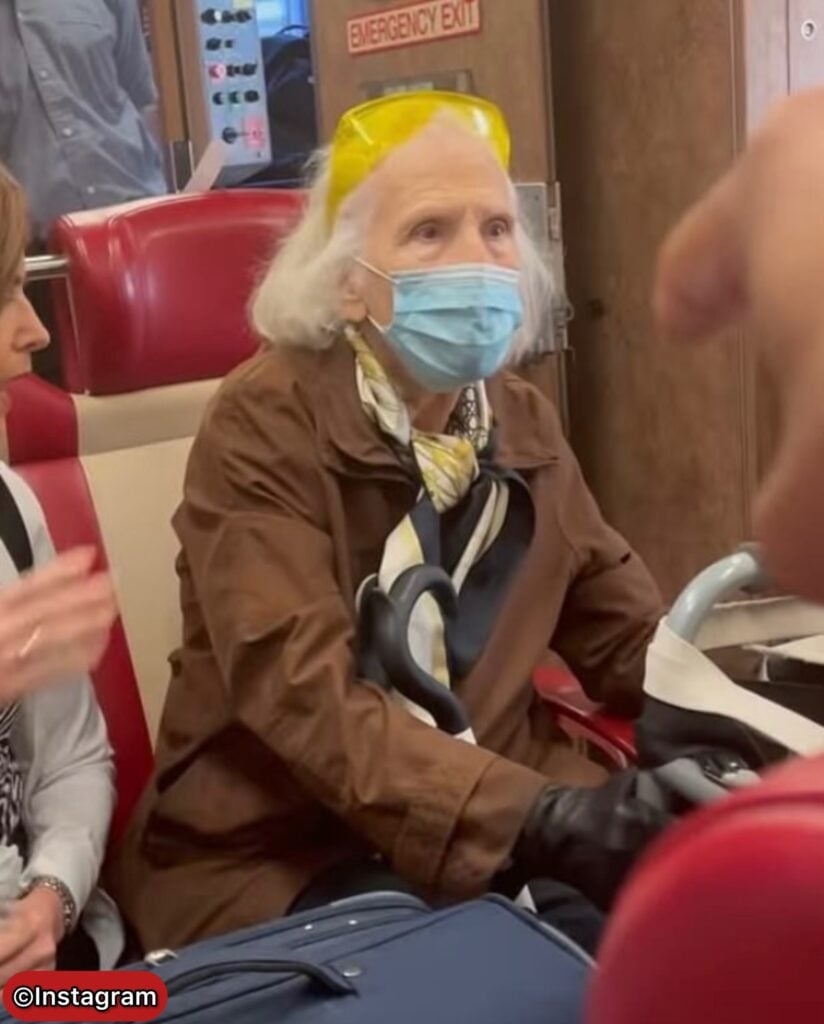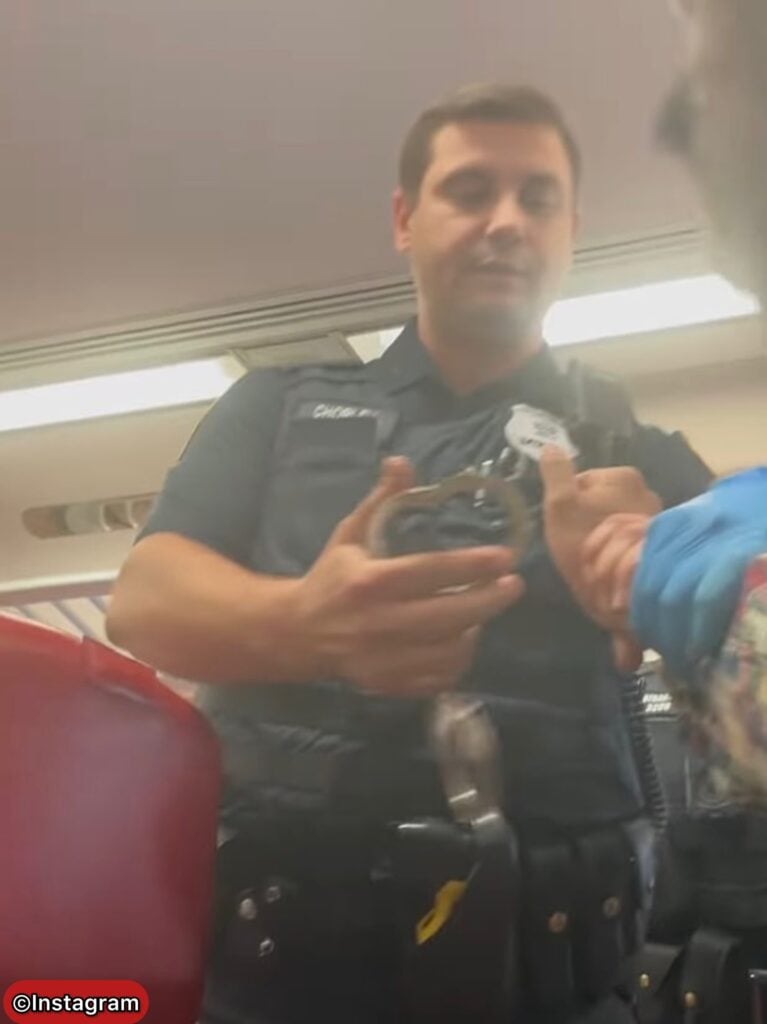Award-winning screenwriter Alex O’Keefe was handcuffed and removed from an MTA train bound for Connecticut on Thursday after a white woman complained about how he was sitting, sparking widespread outrage over what many are calling another instance of racial profiling on public transport.
O’Keefe, who writes for the Emmy-winning FX series ‘The Bear’ and previously worked as a speechwriter for Senator Elizabeth Warren and Senator Ed Markey, posted video footage on Instagram showing MTA police officers placing him in handcuffs whilst the woman who complained watched from her seat. The incident, captured on 18th September, has gone viral across social media platforms, reigniting discussions about the weaponisation of police against Black people in everyday situations.
According to O’Keefe’s Instagram post, an elderly white woman boarded the train and “immediately pointed at me and told me to correct how I was sitting.” When the Hollywood writer refused to adjust his posture, the woman complained to the train conductor, who subsequently called the police and stopped the train.
In the disturbing footage, O’Keefe can be heard directly addressing the woman, who wore a blue face mask and bright yellow glasses perched on her head. “You’re gonna arrest the one Black dude on the train, because this white woman said she didn’t like the way I was sitting on the train,” O’Keefe said as officers pulled him from his seat.

The writer repeatedly protested his innocence, stating “I haven’t done anything illegal” as a female officer ordered him to leave. When O’Keefe questioned what he was being arrested for, a male officer responded that he was “being disorderly,” to which the screenwriter replied incredulously: “I was sitting on a train!”
Perhaps most troubling was what occurred whilst waiting for police to arrive. O’Keefe claimed that “the old Karen’s friend said, ‘You’re not the minority anymore'” – a racially charged comment that underscores the apparent bias motivating the complaint.
“They pulled me off the train and arrested me without even talking to the Karen who reported the one black person on the train,” O’Keefe wrote in his caption. The officers detained and interrogated him on the platform, where four police officers surrounded him as he faced a cement wall with his hands behind his back.
Remarkably, O’Keefe noted that “Only black folks stayed nearby and recorded the arrest.” This observation highlights how Black passengers recognised the gravity of the situation and the importance of documenting potential police misconduct.
The screenwriter was ultimately released after asserting his rights. “When I demanded a lawyer and reminded them they didn’t even take a statement from the woman who complained they eventually released me,” he explained.
The incident has sparked fierce backlash online, with thousands of social media users condemning both the woman’s actions and the MTA’s response. Kari Ferrell, an Instagram user with over 100,000 followers, commented: “Alex, we stand with you! @govkathyhochul @nycmayor @mta CONTROL YOUR GOONS!”
Another user, DJ Anna Morgan, urged legal action: “Really hope you sue that lady, the conductor, each one of those officers and the precinct. Make them pay this is insane.”
Many commenters directly challenged the Metropolitan Transportation Authority, demanding accountability for what they view as discriminatory treatment. One user tagged the MTA’s social media accounts asking: “@mta how will you ensure Black riders are safe from racism on your trains????”
As of the time of reporting, the MTA has not publicly responded to the incident. Multiple news outlets have reached out to the transport authority for comment, but no official statement has been issued regarding the controversial detention.
The timing of this incident is particularly significant given O’Keefe’s prominence in the entertainment industry. The writer is a member of the Writers Guild of America who participated in the 2023 strike that brought Hollywood to a standstill. During that period, he spoke to the BBC about the financial struggles facing writers, revealing he often worked on ‘The Bear’ from his “tiny” Brooklyn apartment and would retreat to the public library when his electricity was cut off.

Professor Khalil Muhammad of Harvard University, who studies history, race and public policy, has previously discussed how “people who were fighting against this kind of ethos in our country — this very punitive, racialised ethos — want to resist this now, so they’re much more likely to pull out their cellphones.” The proliferation of mobile phone footage has made it impossible to ignore what Black Americans have long experienced.
Vesla Mae Weaver, a Bloomberg Distinguished Associate Professor at Johns Hopkins University, noted in a 2018 analysis that “The breezy deployment of police by whites at Yale, at Starbucks, Walmart, and in other social spaces vividly reveals how white people use law enforcement to exert control over their fellow Black Americans.
This pattern of behaviour has become so common that the term “Karen” – referring to white women who weaponise their privilege against people of colour – has entered mainstream vocabulary. The slang term gained prominence in the early 2020s after several incidents of white people calling the police on people of colour for unclear or seemingly arbitrary reasons went viral.
O’Keefe’s detention represents more than an isolated incident; it exemplifies systemic issues within American society where Black people face scrutiny and criminalisation for ordinary behaviour. The fact that police removed and handcuffed him without first investigating the complaint or speaking to other witnesses raises serious questions about procedural justice and racial bias in law enforcement responses.
The video evidence has been shared thousands of times across Instagram, TikTok, and other platforms, with many users calling for concrete action rather than mere statements of concern. A TikTok video about the incident posted by user Nalae has been viewed over 160,000 times, demonstrating the widespread anger and attention this case has generated.
Legal experts suggest O’Keefe may have grounds for civil action against both the individual who made the false complaint and potentially the MTA for their handling of the situation. The fact that officers detained him without proper investigation or evidence of any criminal activity could constitute false arrest.
The incident also raises questions about the conductor’s decision to immediately involve police rather than attempting to mediate what was clearly a minor dispute about seating. This escalation from a petty complaint to police involvement mirrors numerous other cases where Black people have faced law enforcement for activities like barbecuing in parks, entering their own flats, or simply existing in public spaces.
O’Keefe concluded his Instagram post with a pointed question: “This country is growing more psycho by the day. What will you do about it?” It’s a question that resonates beyond this single incident, challenging both institutions and individuals to confront the persistence of racial profiling and discrimination in everyday American life.
The screenwriter’s experience serves as a stark reminder that professional success and acclaim offer no protection from racial bias. Despite his contributions to one of television’s most celebrated programmes and his work with prominent political figures, O’Keefe found himself handcuffed and detained based solely on a white woman’s displeasure with his posture.
As calls for accountability grow louder, pressure mounts on the MTA to explain why their staff and police responded so drastically to a complaint about how someone was sitting. The transport authority’s silence thus far has only amplified criticism and demands for systemic change in how such complaints are handled.
This incident occurs against the backdrop of ongoing national conversations about police reform and racial justice. It demonstrates that despite increased awareness and activism, Black Americans continue to navigate public spaces under threat of criminalisation for behaviour that would never prompt police intervention if exhibited by white citizens.
Follow for more updates on Britannia Daily



